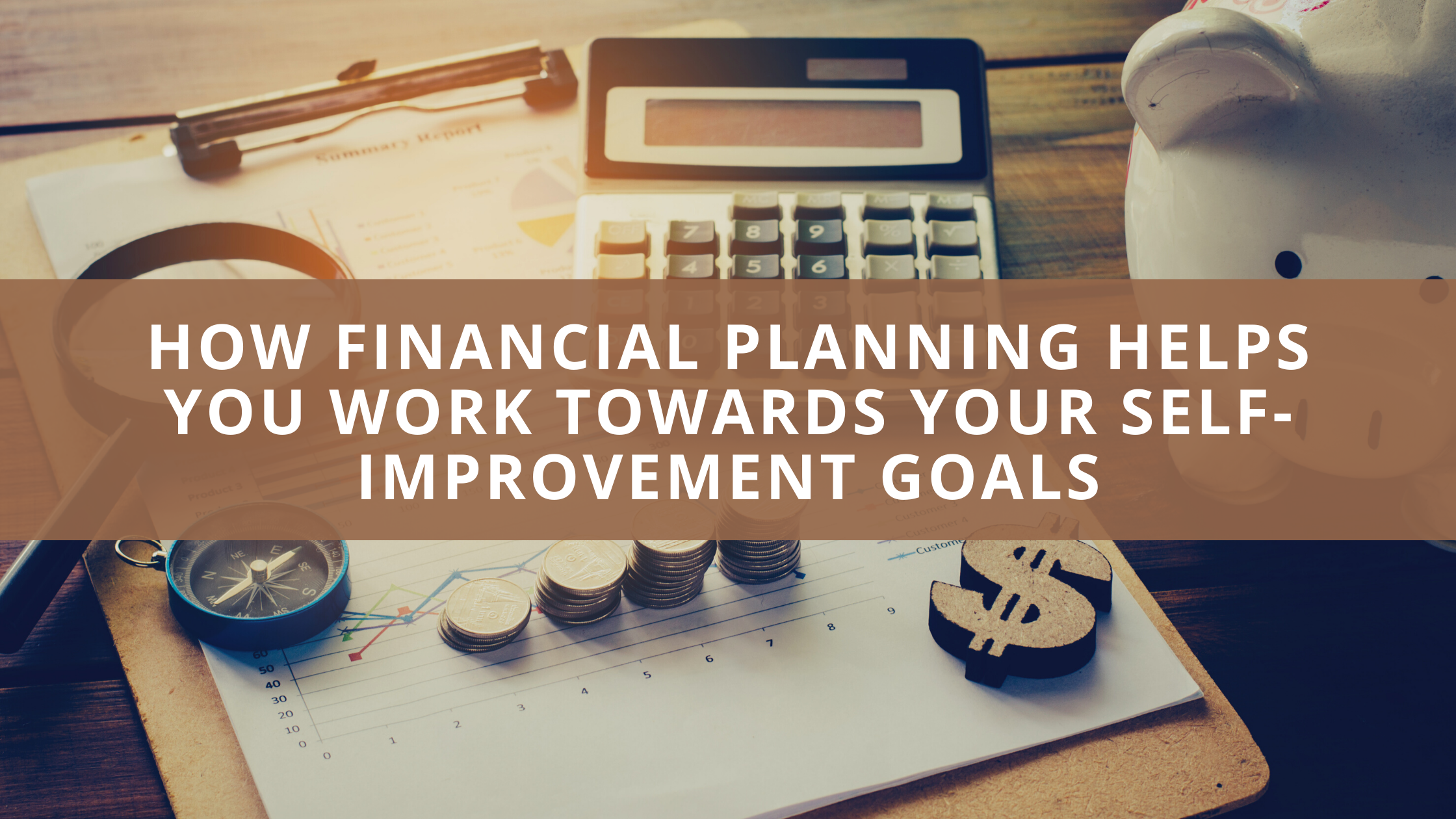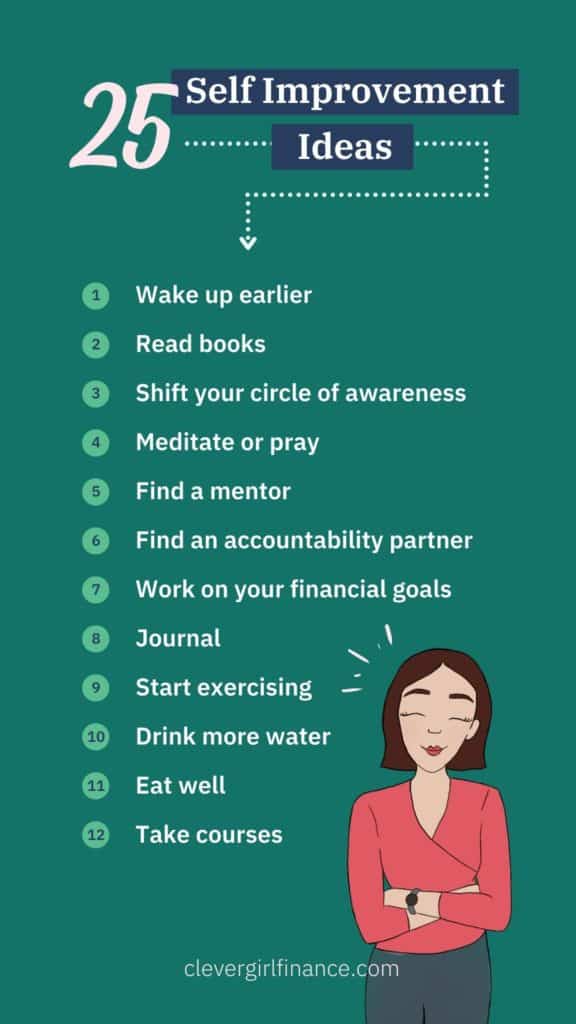Financial Self-Improvement: A Pathway to Financial Freedom

Financial self-improvement is more than just about managing money—it’s about creating a mindset that fosters long-term wealth-building, financial security, and emotional well-being. It involves taking control of your finances, setting clear goals, and adopting habits that lead to financial freedom. If you’ve ever wondered how you can transform your financial life, then this comprehensive guide on financial self-improvement is for you.
In this article, we will discuss the importance of financial self-improvement, actionable steps you can take to improve your financial situation, and how to cultivate a healthy relationship with money.
Why is Financial Self-Improvement Important?
Financial self-improvement isn’t just about making more money—it’s about learning how to manage your finances effectively, minimize debt, build wealth, and plan for the future. It allows you to live with peace of mind, knowing that you have control over your financial destiny. The key reasons why financial self-improvement is important are:
- Build Financial Confidence: Understanding personal finance and setting goals helps you gain confidence in managing your money.
- Achieve Financial Independence: Through wise investing, saving, and budgeting, you can create a path to financial freedom, allowing you to live life on your terms.
- Reduce Financial Stress: By organizing your finances, setting up an emergency fund, and having a financial plan, you reduce the anxiety associated with money.
- Improve Overall Well-being: Financial stability positively impacts your physical and mental health, reducing stress and increasing happiness.

Steps to Achieving Financial Self-Improvement
Improving your finances requires intention and discipline, but with the right approach, anyone can improve their financial situation. Let’s break down the essential steps you should take for financial self-improvement:
1. Develop a Healthy Money Mindset
Your mindset around money plays a critical role in your financial well-being. Cultivating a healthy relationship with money means not only learning to earn more but also to think differently about how you manage it. You must begin by eliminating limiting beliefs such as “money is the root of all evil” or “I’ll never be good with money.” Instead, adopt a mindset of abundance and possibility.
- Recognize your financial triggers, such as overspending when stressed or avoiding budgeting out of fear.
- Develop a positive attitude towards money that encourages growth, saving, and investing.
2. Create a Budget and Stick to It
Budgeting is an essential habit that allows you to track where your money is going. It’s the foundation of financial self-improvement because it ensures that you’re living within your means and prioritizing savings and investments.
Steps for creating a budget:
- Track your expenses: Start by recording all of your income and expenses.
- Categorize your spending: Separate your essential expenses (like rent or groceries) from discretionary spending (like dining out or entertainment).
- Allocate savings: Make sure that a portion of your income is directed toward building an emergency fund or investing.
Remember, consistency is key when it comes to budgeting. Use budgeting apps like Mint or YNAB (You Need A Budget) to keep your spending in check and ensure you’re sticking to your financial goals.

3. Build an Emergency Fund
One of the most important elements of financial security is having an emergency fund. This fund acts as a safety net in case of unexpected expenses like medical emergencies, car repairs, or job loss.
Experts recommend saving 3-6 months of living expenses in a high-yield savings account. Once your emergency fund is established, you’ll feel more secure and less anxious about financial setbacks.
4. Pay Off Debt Strategically
Debt can be one of the most significant obstacles to financial self-improvement. It hinders your ability to build wealth and can cause unnecessary stress. However, becoming debt-free is a journey that requires patience and strategy.
There are two popular methods for paying off debt:
– The Snowball Method: Focus on paying off your smallest debts first, gaining momentum as you eliminate each balance.
– The Avalanche Method: Pay off your highest-interest debts first to reduce the overall cost of borrowing.
Choose the method that works best for your financial situation and commit to making regular payments until you are free from debt.
5. Invest in Your Future
Investing is a key part of financial self-improvement because it allows your money to grow over time. If you’re just starting, consider:
– Retirement accounts: Contribute to a 401(k) or an IRA to benefit from tax advantages and long-term growth.
– Stocks and Bonds: Learn about stocks, bonds, and mutual funds to diversify your investments.
– Real Estate: Consider investing in property or real estate to build wealth over time.
Investing is one of the most effective ways to ensure long-term financial growth. Start early, even if it’s just a small amount, and allow compound interest to work for you.
Tips for Continuous Financial Self-Improvement
- Educate Yourself: Continuously learn about personal finance by reading books, listening to podcasts, and following financial blogs. Some excellent resources include:
- Track Your Progress: Regularly evaluate your budget, savings, and investments. Adjust your financial plan as necessary to stay on track.
- Get Professional Help: If you feel overwhelmed, seek guidance from a financial planner or advisor who can help you make informed decisions and stay accountable.
6. Practice Financial Self-Care
Financial self-improvement isn’t just about numbers; it’s about self-care too. Taking care of your financial health is an act of self-love. Start by reflecting on your financial goals and how they align with your personal values. Prioritize saving and investing, but also make room for enjoying life. Remember, self-improvement is a holistic journey, and your financial well-being is an integral part of that.
Frequently Asked Questions
How long does it take to improve my finances?
Improving your finances is a gradual process that requires consistency and time. You can start seeing improvements in as little as 3-6 months, especially if you commit to budgeting, saving, and reducing debt.
What is the best way to start saving money?
Start small by creating a budget, identifying areas to cut back on, and setting a savings goal. Open a dedicated savings account and set up automatic transfers to make saving easier. Aim to save at least 10-15% of your income.
How can I increase my financial literacy?
There are many ways to improve your financial knowledge:
– Read books like The Total Money Makeover by Dave Ramsey.
– Follow reputable financial blogs and websites.
– Take online courses on personal finance, investing, and budgeting.
What are some good tools for managing my finances?
There are many tools available to help you manage your finances, including:
– Mint for tracking your budget and spending.
– YNAB (You Need A Budget) for zero-based budgeting.
– Personal Capital for investment tracking.
Conclusion
Financial self-improvement is an ongoing journey that requires dedication, patience, and knowledge. By developing a healthy relationship with money, budgeting effectively, eliminating debt, investing for the future, and continuously educating yourself, you can achieve financial freedom and live a more fulfilling life.
Start today by taking small steps toward your financial goals. The power of financial self-improvement lies in your hands—don’t wait to take action!
For more tips on financial wellness and personal finance, check out Clever Girl Finance and Social Work Career.

